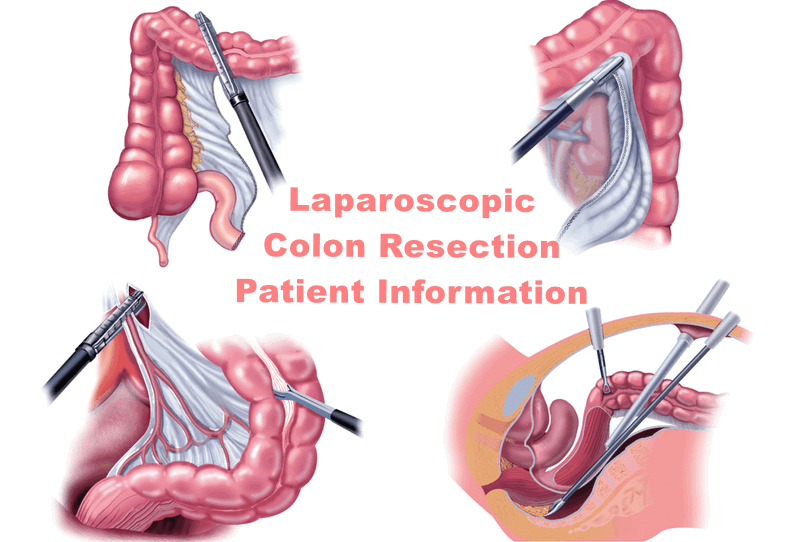The inflammatory bowel disease Crohn’s disease is treated with small intestine resection surgery. Many patients require a surgical process for Crohn’s disease- a condition causing damage to the bowel. It is a type of Inflammatory Bowel Disease (IBD).
The infected section of the small intestine will be removed and healthy tissue. The goal is to decrease inflammation and alleviate associated discomfort.
The length of time needed to recover from surgery varies from patient to patient, but in general, most patients are able to go home within a few days. Rare complications include infection, bleeding, and intestinal blockage. You’ll need to pass a battery of exams to prove you’re healthy enough for surgery before we can schedule it.
Types of Crohn’s disease that can be treated by small intestine resection surgery
These tests determine whether or not Crohn’s disease is confined to the small intestine, as well as its severity and subtype. The most common types of Crohn’s disease which can be treated with small intestine resection surgery are:
- Ileocolitis
- Ileitis
- Jejunoileitis
- Gastroduodenal Crohn’s Disease.
Fistulas are developed when there is a connection between two sections of the bowel, and they are usually repaired surgically. Last but not least, those with Crohn’s disease who have developed strictures or scarring may undergo this procedure to reduce the risk of a bowel obstruction.
Why is small intestine resection surgery needed for Crohn’s disease?
There are many diseases for which people seek small intestine disease treatment in Texas, but for Crohn’s disease, there is a chance that the patient needs to undergo intestine resection surgery. It is because of the damaged and scar tissues that build upon the intestinal wall caused by Crohn’s disease leading to the stricture of the bowel.
Surgery can’t be done if there are long strictures or multiple strictures near together. That is the reason the patient needs to go for resection surgery for permanent removal of the damaged section.
How is small intestine resection surgery done?
Colorectal surgeries are performed by trained surgeons on the lower digestive tract. The procedure of the surgery begins with providing anesthetics to the person undergoing surgery.
The surgeon generally starts by looking at the damaged sections of the small intestines and then removes them. After the removal of the damaged section, the two healthy ends of the intestine are sewed together, the process is known as anastomosis.
One can choose to perform laparoscopic surgery which is a minimally invasive surgical procedure. Just by doing a small incision, a surgeon can reach out to the section of the small intestine for the removal of damaged sections.
Recovering from small intestine resection surgery
Many factors, including the patient’s pre- and post-operative condition, contribute to the length of time it takes for them to fully recover. After resection surgery, patients often spend four to six weeks recovering from the ordeal.
Possible complications of small intestine resection surgery
Risks that are included with any abdominal operation should be discussed with the surgeon. Also, you need to ask if any other risks are depending on your health condition-
Risk of infection near the incision site
Since the small intestine absorbs nutrients from food there are chances of a patient suffers malnutrition if a large part of the small intestine is removed.
May become prone to diarrhea, cramping, and abdominal pain for six to 12 months after surgery as your bowel adjusts to its new size
Anastomotic leak is a risk where there is a chance of leakage where the two healthy ends of the intestine are stitched together.
Things to know about small intestine resection surgery
It is a common surgical process that is used to treat patients suffering from the stricture of the small intestine.
Patients after the surgery enjoy their daily life as they used to before the surgery.
There might be a chance of getting Crohn’s disease again at the anastomosis (where the healthy ends of the bowel are re-joined)
Surgical resection is typically performed on the terminal ileum, the last segment of the small intestine. Deficiency in vitamin B12 is also possible after ileum removal because that organ is responsible for absorbing that nutrient.
Appointment
For more information on Small bowel resection surgery for Crohn’s disease or consultation with Dr. Valeria Simone MD, at Southlake General Surgery, Texas. You can contact our healthcare expert today for a quick appointment at +1 (817) 748-0200.

